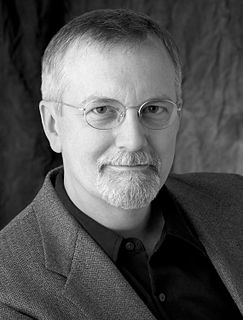A Quote by Susan Sarandon
I've read some of Kurt Vonnegut letters from when he was young. He was a prisoner of war, and even when he was in his early twenties, there were things mentioned that showed up in his novels. One of the sweetest things in those letters was him wanting to be a writer but doubting himself, not having confidence in himself.
Related Quotes
My theory is that Kurt had a lot of residual pain from his childhood. And when you pile that on top of his experience in World War II - he was in Dresden when it was bombed and saw a city annihilated. When you combine those two things, my impression of Kurt Vonnegut at 84 was that he was a very pained and haunted man.
And my father left me a legacy of his handwriting through letters and a notebook. In the last two years of his life, when he was sick, he filled a notebook with his thoughts about me… There are times when I want to trade all those years that I was too busy to sit with my dad and chat with him, and trade all those years for one hug. But too late. But that's when I take out his letters and I read them, and the paper that touched his hand is in mine, and I feel connected to him.
Samuel Beckett is the person that I read the most of - certainly the person whose books I own the most of. Probably 800 or 900, maybe 1,000 books of just Samuel Beckett. By him, about him, in different languages, etc. etc. Notebooks of his, letters of his that I own, personal letters - not to me, but I bought a bunch of correspondence of his. I love his humor, and I'm always blown away by his syntax and his ideas. So I keep reading those.
The things a man has to have are hope and confidence in himself against odds, and sometimes he needs somebody, his pal or his mother or his wife or God, to give him that confidence. He's got to have some inner standards worth fighting for or there won't be any way to bring him into conflict. And he must be ready to choose death before dishonor without making too much song and dance about it. That's all there is to it.
A tutor should not be continually thundering instruction into the ears of his pupil, as if he were pouring it through a funnel, but, after having put the lad, like a young horse, on a trot, before him, to observe his paces, and see what he is able to perform, should, according to the extent of his capacity, induce him to taste, to distinguish, and to find out things for himself; sometimes opening the way, at other times leaving it for him to open; and by abating or increasing his own pace, accommodate his precepts to the capacity of his pupil.
Writing is a concentrated form of thinking...a young writer sees that with words he can place himself more clearly into the world. Words on a page, that's all it takes to help him separate himself from the forces around him, streets and people and pressures and feelings. He learns to think about these things, to ride his own sentences into new perceptions.
Another thing I like to say to my students is this: "How many Corinthians read Paul's letters?" The answer is none. They couldn't have cared less! There aren't even any Corinthians left, but Paul's letters persist. Paul was not a professional writer. He was called to something, and he sent his letters. That's a good way to look at it. That you might be making something that nobody cares about, but you have to do it. It's not that people should care, but that you should care.
Trump's not showing up and trying to politely insert himself in political system and the way politicians do things. He's not trying to ingratiate himself. He doesn't care. He's elected to do specific things. His campaign, his agenda, his rallies, a very long list of specific things, and he reminded everybody, if you're thinking he's not gonna build a wall, if you're thinking that was just chatter, I'd change my mind if I were you.
[Man] is the only animal who lives outside of himself, whose drive is in external things—property, houses, money, concepts of power. He lives in his cities and his factories, in his business and job and art. But having projected himself into these external complexities, he is them. His house, his automobile are a part of him and a large part of him. This is beautifully demonstrated by a thing doctors know—that when a man loses his possessions a very common result is sexual impotence.



































